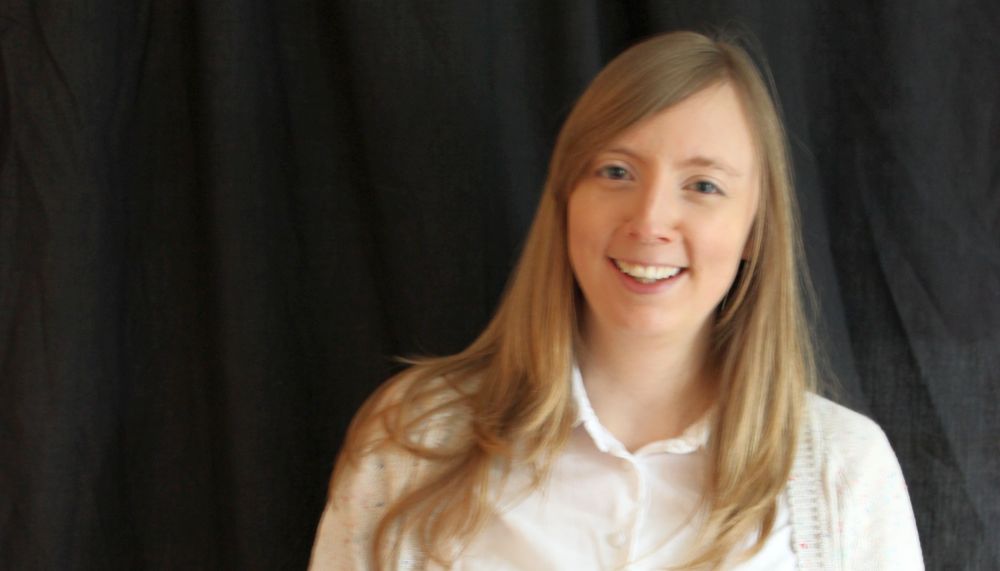A simple recipe to make the ICT industry more inclusive and diverse
An interview of Carrie Phillbin

TechRadar Pro, in collaboration with the Digital Conference 2014, has interviewed some of the keynote speakers of the event. It takes place at the Celtic Manor on the 9th and 10th of June, for more information please visit www.digital2014.co.uk. Below is the interview of Carrie Anne Philbin, author of Adventures in Raspberry Pi, who discusses how young people and women can be encouraged to embrace the tech industry.
TRP: Tell us about yourself and what you do?
I am an award winning secondary Computing & ICT Teacher and now Education Pioneer at the Raspberry Pi Foundation. I am the author of 'Adventures in Raspberry Pi' a computing book for teenagers wanting to get started with Raspberry Pi and programming. I am the creator of a YouTube video series for teenage girls called The Geek Gurl Diaries, which has won a TalkTalk Digital Hero Award. The episodes include interviews with women working in technology and hands on computer science based tutorials. And I'm vice chair of Computing at School's diversity sub organisation called CAS #include. The Raspberry Pi is a small credit card sized computer that costs just under £30. The idea behind the tiny computer was to get young people hands on with computing, to learn more about computer programming, hardware and electronics.
TRP: What will you be talking about at Digital 2014?
I will be speaking about my experience of making Digital Skills accessible through interactive teaching methods with examples of my work on a project called Sonic Pi, a live coding music platform developed by Dr Sam Aaron at the University of cambridge to teach programming concepts with music. I'll also be speaking about my work inspiring girls to take up computing through my work with CAS #include and Geek Gurl Diaries.
TRP: What are the latest trends you've seen and harnessed across the digital landscape over the past year?
The maker movement is taking the world by storm, with maker faires being setup across the globe. There is a shift towards becoming more hands on with technology and reusing and recycling resources, with workshops on 'how to solder' becoming increasingly popular. This concept of having an idea and making it happen is being harnessed in the education sector with raspberry pi projects. Lots of bird boxes with cameras streaming the images across ethernet, and weather stations are being set up in schools. Parent traps and pet feeders are also becoming popular.
Are you a pro? Subscribe to our newsletter
Sign up to the TechRadar Pro newsletter to get all the top news, opinion, features and guidance your business needs to succeed!
TRP: Digital 2014 has a particular focus on bringing for women into the ICT industry; how important is it for this to happen?
It's vital that the ICT industry responds to the massive gender imbalance within their organisations. Currently the user base of technology is not represented by the creator base. This means that technological advances are being furthered by a minority. Groups with greater diversity solve complex problems better and faster, and with the tech industry being the fastest growing sector for employment and highest paying, girls represent a valuable and untapped pool of talent.
TRP: How do you, personally, encourage young people into the ICT industry?
I encourage young people and especially girls, by creating video tutorials for my youtube channel Geek Gurl Diaries. I also interview women in tech for the channel. As a teacher I always promoted a creative and collaborative hands on approach to learning. In my role as Education Pioneer at Raspberry Pi, I write step by step tutorials for the website that young people can follow that inspire young people to get hands on with technology, from creating a parent trap alarm, to a hamster party camera setup. I've also written a tech tutorial book for young people called 'Adventures in Raspberry Pi' to show that creativity and computing do mix!
TRP: Through your work, do you see more and more women coming into the industry?
I hope so, that is the aim after all. In my work as a teacher in an east London school, we went from around 10% female uptake at KS5 to just under 50% within 3 years, based on the four key areas: good role models, take a gender neutral approach, provide positive, collaborative, hands on experiences that solve real world problems or have a social impact.
TRP: How can the industry encourage more young people and women into it?
Industry can help by promoting female role models within their organisations and providing outreach and mentoring for young women. They should provide positive hands on experience for young women by running workshops or clubs. They should venture out into schools to meet with young people to help break down the stereotypes and prejudices associated with tech jobs. They should have a gender neutral approach in their office culture, and employment procedure.

Désiré has been musing and writing about technology during a career spanning four decades. He dabbled in website builders and web hosting when DHTML and frames were in vogue and started narrating about the impact of technology on society just before the start of the Y2K hysteria at the turn of the last millennium.